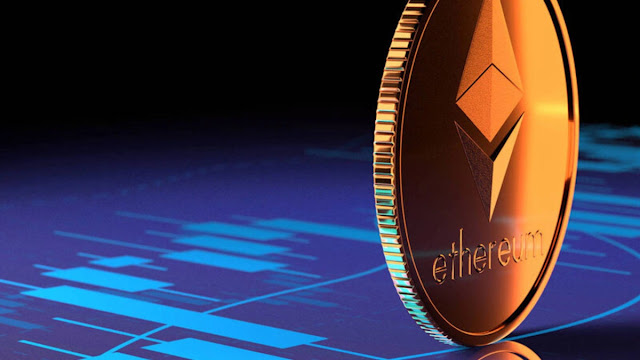Visa, the multinational financial services company, has recently announced a proposal for an auto-payment system built on the Ethereum blockchain. This move marks a significant step forward in the adoption of blockchain technology in the financial industry.
What is the Proposed Ethereum Auto-Payment Scheme?
The proposed system would allow for automatic payment of bills and other recurring charges using Ethereum's smart contracts. This would eliminate the need for manual payments and reduce the risk of missed or late payments. It would also provide a more secure and transparent payment process, as all transactions would be recorded on the blockchain and easily verifiable.
One of the key benefits of the proposed system is the ability to automate payments for a wide range of services, including utilities, rent, and subscriptions. This could greatly simplify the payment process for both individuals and businesses, saving time and reducing the risk of errors.
Benefits of the Ethereum Auto-Payment Scheme
In addition to the convenience and security offered by the system, it could also have a number of other benefits.
Streamlining Payment Processes
The proposed Ethereum auto-payment system has the potential to streamline payment processes for both individuals and businesses. By automating the payment of recurring charges, individuals would no longer have to worry about remembering to pay their bills on time. This could also save businesses time and resources that would otherwise be spent on manual billing and payment processes.
Increased Security and Transparency
One of the key features of blockchain technology is its ability to provide a secure and transparent record of transactions. By using Ethereum's smart contracts for the auto-payment system, all payments would be recorded on the blockchain and easily verifiable. This could help to reduce the risk of fraud and errors, as well as provide a more transparent payment process.
Environmental Benefits
The proposed Ethereum auto-payment system could also have a positive impact on the environment. By automating payments, the need for paper invoices and physical payment methods would be greatly reduced, leading to a decrease in paper usage and a decrease in carbon emissions from transportation.
Is the Proposed Scheme Likely to be Implemented?
Visa's proposal is still in the early stages, and it remains to be seen whether it will be implemented. However, the fact that a major financial institution like Visa is considering the use of Ethereum's smart contracts for an auto-payment system shows the potential for blockchain technology to revolutionize traditional financial processes.
The Future of Financial Technology
The use of blockchain technology in the financial industry is an exciting development that has the potential to greatly improve financial processes and systems. The proposed Ethereum auto-payment system from Visa is just one example of how blockchain could be used to streamline and improve traditional financial processes.
In addition to the benefits outlined above, the use of blockchain technology could also lead to other innovations in the financial industry. For example, it could enable the creation of new financial instruments and products, such as decentralized finance (DeFi) platforms that allow for the creation of financial products without the need for traditional intermediaries.
It is clear that the adoption of blockchain technology in the financial industry is still in the early stages, but it has the potential to greatly transform the way we manage our finances. It will be interesting to see how this proposal from Visa develops and whether it is eventually implemented. Regardless of the outcome, it is clear that the future of financial technology is an exciting space to watch.
Impact on the Ethereum Network
If Visa's proposed Ethereum auto-payment system is implemented, it could have a significant impact on the Ethereum network. Ethereum is currently the second largest cryptocurrency by market capitalization and is widely used for a variety of applications, including smart contracts and decentralized applications (DApps).
The adoption of Ethereum's smart contracts for the auto-payment system would represent a major endorsement of the network's capabilities and could lead to increased demand for Ethereum. This could result in an increase in the price of Ethereum and could also lead to an increase in the number of transactions being processed on the network.
It is worth noting that the increased demand on the Ethereum network could also lead to scalability challenges. Ethereum has faced scalability issues in the past, as the network can only process a limited number of transactions per second. If the adoption of the Ethereum auto-payment system leads to a significant increase in the number of transactions being processed on the network, it could lead to increased competition for block space and higher fees for transactions.
However, it is important to note that Ethereum is actively working on solutions to address scalability issues. For example, the Ethereum 2.0 upgrade, which is set to be released in the coming years, aims to significantly increase the network's capacity and reduce fees.
Conclusion
Visa's proposal for an Ethereum auto-payment system is an exciting development that has the potential to revolutionize financial processes and improve the efficiency and security of payments. If implemented, it could greatly simplify the payment process for both individuals and businesses, while also providing increased security and transparency. The environmental benefits of the system could also be significant, with a decrease in paper usage and carbon emissions.
The adoption of blockchain technology in the financial industry is still in the early stages, but it has the potential to greatly transform the way we manage our finances. It will be interesting to see how this proposal from Visa develops and whether it is eventually implemented. Regardless of the outcome, it is clear that the future of financial technology is an exciting space to watch









0 Comments